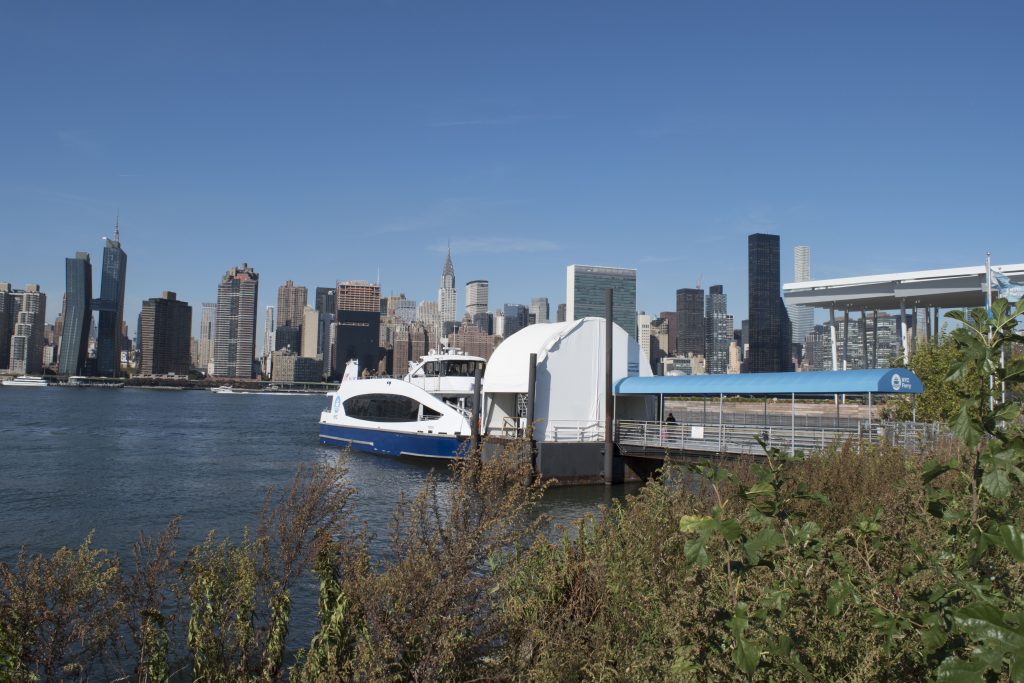
A ferry at Hunters Point South in Long Island City (Photo: Nathaly Pesantez)
Dec. 28, 2017 By Tara Law
The Department of Transportation will soon have to assess whether city ferries should run on alternative fuels as opposed to diesel, following the passage of a City Council bill Dec. 19 and the likely signature of the mayor.
The bill, introduced by Councilmember Costa Constantinides (D-Astoria), is a step toward requiring city ferries to use more efficient, environmentally-friendly fuels as opposed to the standard petroleum diesel fuels.
The legislation, which Mayor Bill de Blasio is expected to sign into law, would mandate a two-year study to consider the use of alternative fuels such as biodiesel, hybrid electric and fuel-cell electric.
The study would look into availability of these fuels as well as storage, ferry compatibility, potential limitations, regulations and other issues.
The city would convert the ferries to these energy sources if the study determines that using renewable fuels is feasible and practical.
The law would apply to city owned ferries, such as the Staten Island Ferry, as well as ferries operated on behalf of the city, such as the NYC Ferry system.
The council voted unanimously to approve the bill.
Constantinides thanked his fellow councilmembers for backing the bill, describing the ferries as one of the city’s “most sustainable transit options.”
“As use of our citywide ferry system has grown exponentially, we must innovate the type of energy we use to fuel the boats,” said Constantinides.
In August, a new ferry line opened connecting Astoria, Roosevelt Island, Long Island City and Manhattan. NYC Ferry ridership has exceeded expectations.
“This bill will ensure that our ferries use renewable fuels rather than the standard petroleum diesel fuel that dominates currently,” Constantinides said in a statement.
“Studies by the National Institutes of Health have shown that petroleum diesel exhaust is a major source of air pollution, which causes adverse health effects. Standard petroleum diesel fuel exhaust emits greenhouse gases which are contributors to climate change.”
4 Comments







Are the planes that fly over our homes and schools, every thirty seconds going to be required to comply?!? They dump more harmful chemicals into the air we have to breathe than a few ferryboats! Hypocrites!
So the brand new, expensive boats that apparently are leaking now need to be updated to use sustainable fuels.
I am for cleaner fuels. I just wonder will it cost more and will fares go up? Why did they not implement this procedure before the ferry service was introduced?
because the mayor wanted everything done right away quick as a bunny as usual that is why — just like the subways finish them first quick that is why they are breaking down